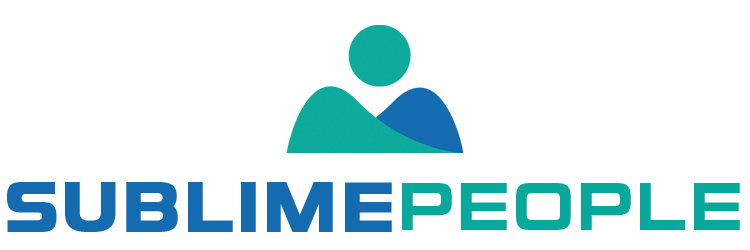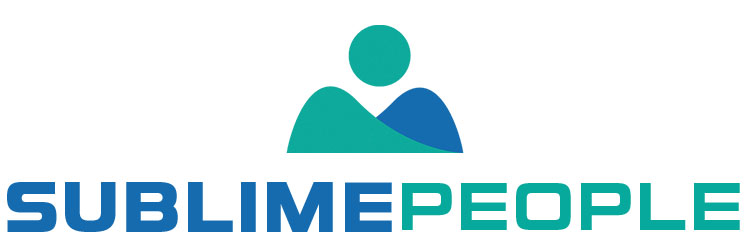A follow-up email is an email sent after an interview to thank the interviewer and express your continued interest in the position. The goal of the follow-up email is to keep your name in the interviewer’s mind and reaffirm your interest in the position. To write a good follow-up interview email, here are ten tips.
In this Article:
Reasons why you should send a thank you email after a job interview
With the job market becoming increasingly competitive, it’s more important than ever to send a follow-up email after your job interview. Here are ten reasons why you should always send a follow-up email:
1. To show your interest in the position
2. To thank the hiring manager for their time
3. To reiterate your qualifications for the role
4. To address any concerns the interviewer may have
5. To establish a relationship with the interviewer
6. To ask any questions you may have about the role
7. To provide additional information that you didn’t have a chance to during the interview
8. To express your excitement about the opportunity
9. To thank the interviewer for their consideration
10. To stay top of mind with the interviewer
But how do you do this without coming across as desperate or pushy? How do you send a good thank you email after a job interview? Below you can find ten tips for writing the perfect follow-up emails to hiring managers after your interview.

1. Always thank the interviewer for their time, regardless of the outcome
Thanking the interviewer for their time is always a good way to end an interview. It shows that you appreciate their time, even if you aren’t offered the job. It also gives a good impression and could lead to future opportunities.
2. Keep your message brief and to the point
When you send a follow-up email after an interview, it’s important to make sure that your message is clear and concise. You are not writing another cover letter, so there is no need to reiterate all your qualifications.
Be sure to proofread your email before sending it, and avoid using informal language or slang. Keep your message polite and professional, and you’ll increase your chances of getting a response from the hiring manager. In other words, try to keep your message to one or two paragraphs, and resist the urge to ramble on.
3. Recap your qualifications and why you are interested in the position
You can mention something from the interview that reinforced your qualifications for the position. Below, you will find an example of a follow-up email after an interview:
“I enjoyed talking with you about the position, and I am confident that I have the skills and qualifications that you are looking for. I was particularly interested in hearing more about [specific aspect of the job] and how it contributes to the overall success of the company. It was great to hear that [positive attribute of company].”
4. Reference any conversations you have had with the interviewer
Be sure to mention something from the conversation that you found interesting or memorable. For example, if the interviewer told you about their company’s culture, or mentioned a project you would be working on, mention that in your email. This will help keep your application at the top of their mind.
5. Ask if there is anything else you can provide to help move along the process
If you have any additional information that you think would be helpful, such as a writing sample or a list of references, be sure to include that in your email. This will show that you are willing to go the extra mile to help your application stand out.
6. Remain positive and professional throughout the exchange
When you send a follow-up email after an interview, it’s important to remain positive and professional. Use positive language and a positive tone, and avoid being overly familiar or informal. Also, avoid using slang or abbreviations, and be sure to proofread your email before sending it.
7. Send your email within 24 hours of the interview
The sooner you send your email, the better. Sending a follow-up email within 24 hours of the interview shows that you are interested and motivated. It also helps keep your name at the top of the interviewer’s mind.
8. Use a clear and concise subject line
When you send a follow-up email, be sure to use a clear and concise subject line. This will help ensure that your email is opened and read. Here are 5 sample subject lines:
- Thank you for your time
- Follow-up to our interview
- Thank you for the opportunity to interview
9. Use a professional email signature
Be sure to include a professional email signature when you send a follow-up email. This should include your name, contact information, and any relevant links or attachments. Including a professional email signature will assure that your message is taken seriously.
10. Avoid sounding desperate or impatient
When you send a follow-up email, you must avoid sounding desperate or impatient. This means try not to make any demands. Remember that the hiring process can take time, and be patient throughout the process.
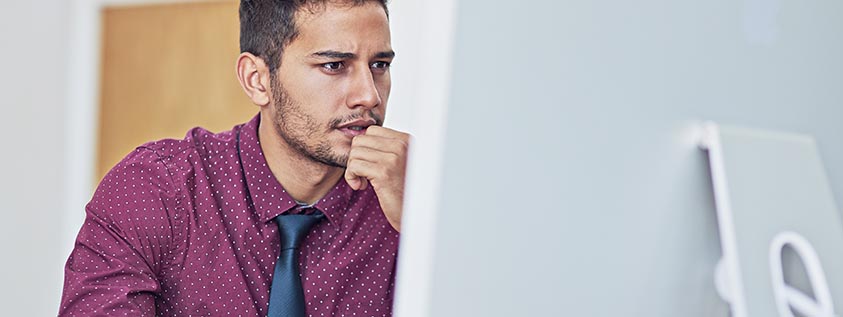
Additional information for your consideration
Send your email to the interviewer, and CC your point of contact
When you send a follow-up email after an interview, be sure to send it to the interviewer, and CC your point of contact. This will help ensure that your email is seen by the right people.
Attach points you didn’t mention in the interview
If you have any additional information that you think would be helpful, such as a writing sample or a list of references, be sure to include that in your email. This will show that you are willing to go the extra mile to help your application stand out.
Don’t overthink it too much
A follow-up email is a great way to show interest in a position, but don’t overthink it too much. Your career path and dream job doesn’t hinge on a perfectly crafted follow-up email. You can always continue your job search if this job doesn’t work out.
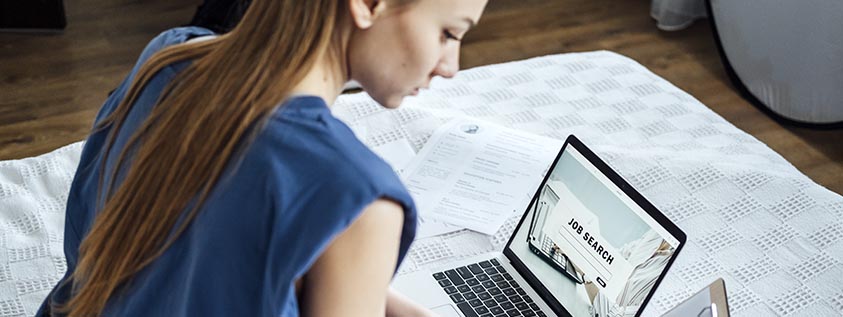
Follow up email when there are multiple job interviews in the hiring process
Typically, there are several steps within the interview process. Below we give you considerations on why or why not to do a follow-up interview email after each step.
Phone interview: The phone interview is the first interview and a great opportunity to establish whether there is a fit with the company and the role. In case there is a phone interview, writing a follow-up email after the call is an opportunity to restate your qualifications and interest in the position.
In-person interview: The in-person interview is usually the final step in the interview process (although some companies may have additional steps). Sometimes the in-person interview is with a manager, and sometimes it’s with a panel. In either case, if you’re invited to an in-person interview you should definitely send an email after the interview expressing your continued interest in the role.
Second in-person interview: If there is one, the second interview is typically the last interview in the process. If you’re invited to a second interview, it’s almost certain that the company is interested in you. At this stage, a follow-up email is not really necessary because a fit is already assumed. If you want to send one, focus on how excited you are about the opportunity to join the team.

Examples of follow-up emails
Below you can find some examples of follow-up emails that you can use after your interview.
Follow up email template 1
Subject line: Thank you for your time
Hello [hiring manager’s name],
Thank you for taking the time to speak with me yesterday about the [job title]. I appreciate the opportunity to learn more about the company and the role.
I am confident that my skills and experience are a good match for this position, and I am eager to put my skills to work in this role. With this in mind, I am confident that I can be a valuable asset to the team, and I am excited about the opportunity to contribute to the company’s success.
Thank you again for your time, it was a pleasure meeting you, and I look forward to hearing from you soon.
Sincerely,
Your name
Follow up email template 2
Subject line: Following up on our conversation
Hello [hiring manager’s name],
I wanted to reach out and thank you for taking the time to speak with me yesterday about the [job title] position. I appreciate the opportunity to learn more about the company and the role.
After our conversation, I am even more confident that my skills and experience are a good match for this position. I am excited about the opportunity to put my skills to work in this role and contribute to the company’s success.
Thank you again for your time, and I look forward to hearing from you soon.
Sincerely,
Your name
Follow up email template 3
Subject line: Thank you for your time
Hello [hiring manager’s name],
Thank you for taking the time to speak with me yesterday about [job title]. I enjoyed learning more about the company and the team, and I am confident that I have the skills and qualifications that you are looking for.
I was particularly interested in hearing more about the [project] and how it contributes to the overall success of the company. It was great to hear that positive attribute of [company].
If you have any additional information that you think would be helpful, such as a writing sample or a list of references, I would be happy to provide that.
Thank you again for your time, and I look forward to hearing from you soon.
Best regards,
Your name
Follow up email template 4
Dear [hiring manager’s name],
After the conversation, I am confident that I can do the job because I have [Skills and qualifications] that are needed to do the job.
I would like to thank you for giving me the opportunity to introduce myself and explain why I am the best candidate for this job.
If you have any questions or need more information, please do not hesitate to contact me at [phonenumber]. Thank you very much for your time.
Sincerely,
Your name
Follow up email template 5
Subject Line: Job Application Follow Up
Hello hiring manager,
Thank you for taking the time to speak with me about the open position. I appreciate the opportunity to learn more about the company and the team. Based on our conversation, I am confident that my skills and experience are a good match for this position.
I hope there will be a positive hiring decision, and I can get started at [company name] as soon as possible. I am confident I will excel in this position and contribute to the company’s success.
Thank you again for your time, and I look forward to hearing from you soon.
Sincerely,
Your name
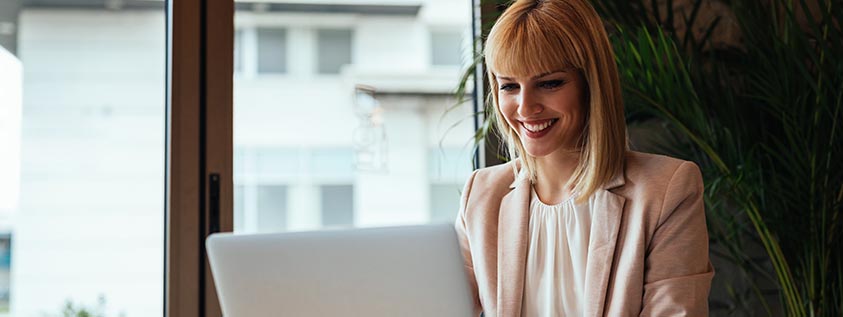
A word from SublimePeople
Sending a follow-up email after your interview is a great way to thank the interviewer and express your continued interest in the position. The goal of the follow-up email is to keep your name in the interviewer’s mind and reaffirm your interest in the position. If you want to write a good follow-up interview email, keep in mind the tips discussed above.
Do you usually send a follow-up email after an interview? Share your experience with us!
